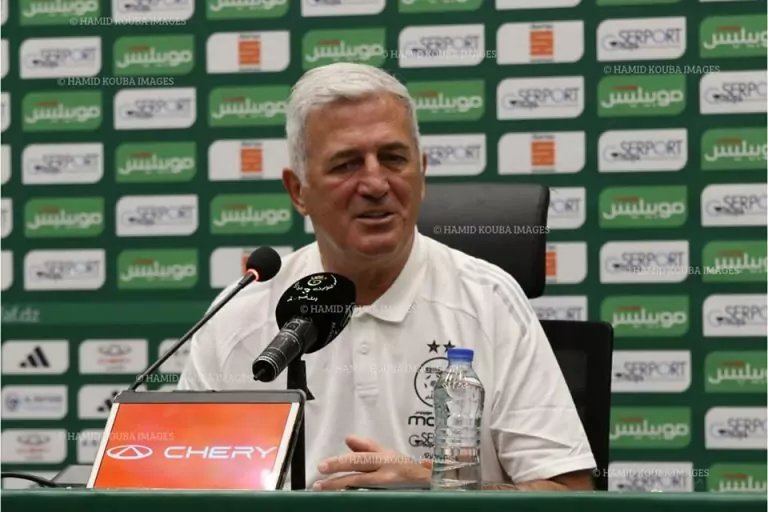Algeria coach Petkovic sticks with established squad despite calls for new talent

Algeria head coach Vladimir Petkovic has named a 29-man squad for the national team’s upcoming fixtures in June, opting to maintain a familiar lineup and passing over several emerging domestic and international performers.
The announcement, which has drawn criticism from fans and pundits alike, signals the coach’s commitment to continuity as he prepares for the 2025 Africa Cup of Nations.
Among the most notable omissions are Paradou AC’s Adil Boulbina, Charleroi midfielder Yacine Titraoui, and CR Belouizdad striker Aymen Mahious—three players who have been at the center of speculation for a potential first call-up.
Boulbina currently leads the Algerian Ligue 1 scoring chart with 18 goals, while Mahious trails close behind with 12. Titraoui, meanwhile, has impressed in his debut season in Belgium, earning plaudits for his consistent displays in midfield.
The exclusion of these rising talents has sparked widespread debate, particularly in light of the upcoming friendlies against Rwanda on 5 June in Constantine and against Sweden in Stockholm later that week.
Many believed these fixtures offered an ideal low-pressure environment to introduce fresh faces into the national setup and assess their readiness for higher-level competition.
However, Petkovic defended his squad selection in a press briefing, making it clear that his priority lies in fostering unity and consistency among players already familiar with the team’s structure.
The Swiss-Bosnian tactician explained that with major tournaments on the horizon—including the Africa Cup of Nations in Morocco and the World Cup qualifiers—it was crucial to solidify a core group capable of executing his tactical vision.
“We are in a phase where we need to build chemistry, not experiment,” Petkovic stated. “This is not the moment for trials. It’s the time to strengthen what we have and move forward with purpose.”
While such reasoning may resonate from a strategic standpoint, it has not gone down well with sections of the Algerian football community, who argue that friendlies exist precisely to test new combinations and evaluate untapped potential.
Critics have questioned whether Petkovic’s conservative approach may limit the team’s adaptability in future competitive scenarios.
For Boulbina, Mahious, and Titraoui, the snub is a bitter pill, especially given their form and public support.
Their absence is not merely a missed opportunity for individual recognition, but also a signal that the door to the national team remains tightly shut to unproven names—no matter how brightly they shine at club level.
Despite the backlash, Petkovic appears unmoved, doubling down on his belief that stability is the key to long-term success.
His decision underscores a broader philosophy aimed at building a team rooted in familiarity and cohesion, rather than experimentation.
As Algeria prepares to face Rwanda and Sweden, the spotlight will remain firmly on Petkovic’s selections. Results in these friendlies may not count for much in the standings, but they could shape the narrative surrounding the team’s direction in the months leading up to the continental showdown in Morocco.
Whether this gamble on continuity pays off will ultimately be judged not by public opinion, but by performance on the pitch when the stakes are highest.




